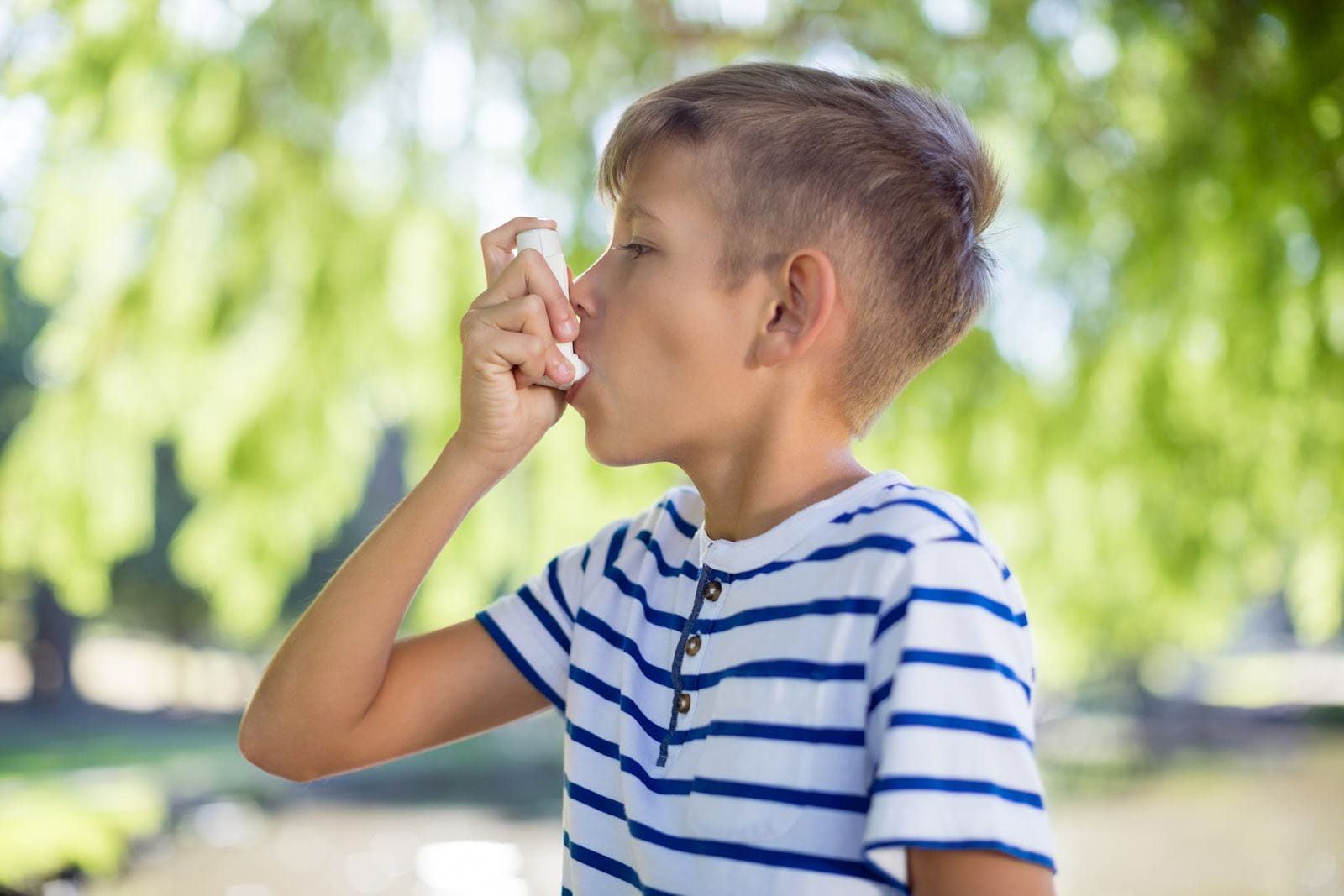The end of the school year and the start of summer mean it’s time for outdoor fun. The very things that draw kids outside — beautiful weather and the activities it opens up — can have adverse effects if your child is one of the nearly 50,000 children in Iowa who has asthma.
It might seem more difficult to help your child manage their condition when they’re out of their normal routine and you can’t keep tabs on all their outdoor activities. But if you understand their triggers — and know some surprising ones — you can help your kid enjoy their summer and prevent asthma flare-ups.
Watch the weather for changes that cause asthma symptoms.
The Des Moines climate does you no favors. Nearly everything in a typical summer forecast in the metro — heat, humidity, thunderstorms, pollen — is a recipe for coughing, wheezing, breathing difficulties and chest tightness. Keep an eye on the forecast every day so you can prepare your child for whatever the weather brings.
Extreme Heat
Heat doesn’t typically cause any new or different symptoms. But the hotter it gets, the greater the risk for an asthma attack. When temps rise into the triple digits, your kid may cough and wheeze more and lose their breath. Moving between the cool, air-conditioned indoors and the scorching heat outside can also trigger symptoms.
When a summer heat wave hits, schedule outdoor playtime in the morning or evening when temperatures are typically lower.
High Humidity
The weather affects children with asthma in different ways. Some kids experience symptoms in hot, dry air; others when it’s hot and humid. Sometimes, humidity alone is enough to cause asthma issues. The thick, moist air makes breathing more difficult and cranks up the heat index to an extreme degree.
In Des Moines, the relative humidity is highest later in the summer. If the sauna-like August air is too much for your kid, plan some fun inside where it’s drier and cooler.
High Pollen Count
Allergic asthma is the most common type of asthma, affecting about 60 percent of asthmatics. Mold spores, tree pollens, grass pollens and weed allergens in the air cause asthma symptoms or make them worse.
Grass pollens are the most common summer allergen. They pop up when the grass is green and growing, which typically happens by late May in Iowa and continues through July. In late July or early August, weed pollens like ragweed take over and trigger asthma into the fall.
Dig deeper into your local forecast to check the allergy trackers or pollen alerts. Pollen counts are highest on hot, windy days when the air is dry. The pollen is unavoidable if your kids are outdoors but you can help them out by keeping your home environment allergen-free:
- Close your windows so the wind can’t sweep pollen inside.
- Wash your child’s hair and change their clothes after they’re done playing outside.
- Dust and vacuum so pollen doesn’t accumulate in your home.
Thunderstorms
Typically, rain is a help for asthma sufferers. It washes the allergens out of the air. But severe thunderstorms have been linked to asthma attacks. Multiple triggers — sudden temperature swings, high pollen counts and humidity — combine in one asthma-inducing event.
When a storm front moves in, the temperature can drop drastically. The drafts of cold air then sweep allergens into the humid clouds, where they break into smaller particles and are carried away by high winds. The elements necessary to cause thunderstorm asthma are rare but if there’s a severe storm heading for central Iowa, your kids are safer staying out of it.
Take precautions during popular summer activities.
Almost every favorite summer activity takes place outside, so the weather gets the bulk of the blame for exacerbating asthma. But there are other things that may be triggers for your child:
- Grilling, camping or toasting marshmallows – Smoke causes asthma symptoms and make it harder for your kid to breathe. When your family’s sitting around the fire, give your child a seat upwind, so the smoke blows away from them. Keep them away from the grill or seat them further away from a fire to avoid prolonged smoke exposure.
- Swimming – While the chemical at the pool is not an allergen, the smell of chlorine is so strong that it can trigger asthma in some kids. Pack an inhaler in your child’s swim bag for trips to the pool or splash pad.
- Hanging clothes to dry – While you may love the smell of sun-dried clothes fresh off the line, they are covered in allergens. If your child has allergic asthma, use your dryer or only hang clothes on the line when the pollen count is low.
- Exercise – About 90 percent of children with asthma get exercise-induced asthma, where strenuous activity brings on their symptoms. Chlorine, dry air, pollen and poor air quality act as additional triggers. Make sure your child warms up properly, uses a pre-exercise inhaler and has taken their medication before a day at the pool, a baseball game or other forms of outdoor exercise.
Develop a plan for managing summer asthma.
Many of the summer asthma triggers, like smoke, pollen and other allergens, affect children more than adults. Even playing or laughing too hard is more likely to bring on symptoms in kids. Quick-relief treatments are effective at squelching asthma attacks, so it’s critical to send those with your kids wherever they go. Make sure nannies, babysitters and other summer caretakers are aware and equipped to help your kid in the event of an attack.
The summer is long and the weather is unpredictable, so you also need a plan for long-term asthma control. If your child’s symptoms worsen in the summer or they suffer asthma attacks more often, talk to your allergist or primary care doctor about getting an up-to-date asthma plan. They can prescribe medications for the underlying cause of your child’s asthma or to better control symptoms when other treatments aren’t enough.


